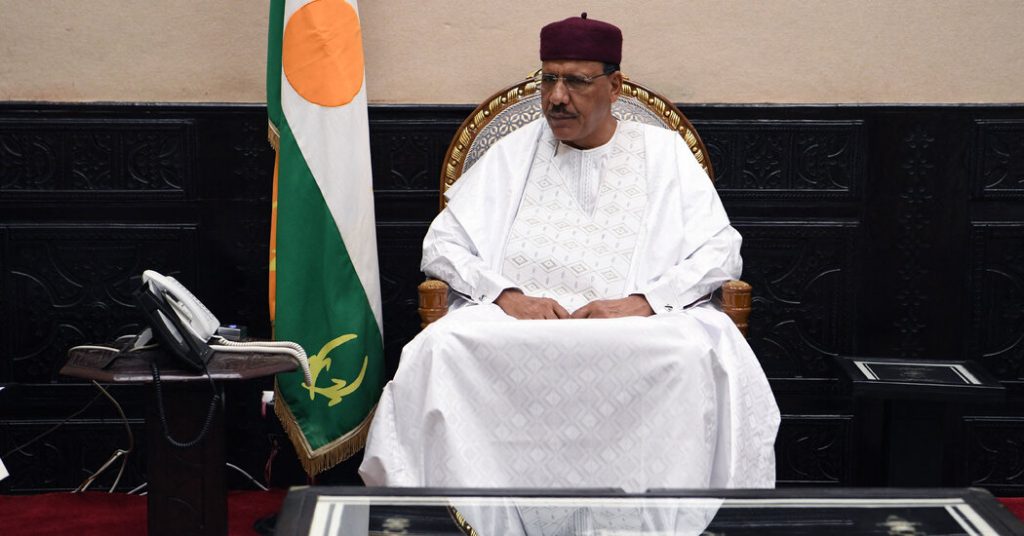Mohamed Bazoum, the deposed president of Niger, is currently being held captive by his former security guards in an isolated wing of his house. He has been in detention for nine months since being toppled in a coup and is unable to communicate with his lawyers or other family members. The military junta that deposed him is seeking to strip him of presidential immunity in order to prosecute him on charges such as treason, which could result in life imprisonment. His closest allies have been jailed or forced to flee, and international partners are backing away, leaving Mr. Bazoum largely forgotten in the political landscape.
As soldiers have seized power in several West and Central African countries in recent years, individual freedoms have been curtailed, and civilian rule has been delayed. Mr. Bazoum’s situation is unique as he remains detained only a few hundred feet from the presidential compound and his captor, Gen. Abdourahmane Tchiani. The military government in Niger has accused Mr. Bazoum of failing to secure the country from Islamist insurgents, but analysts believe that political rivalries were the true cause for his removal from power.
Mr. Bazoum faces a hearing on May 10 that could strip his presidential immunity, leading to possible prosecutions on various charges including treason and plotting against the state’s safety. He has been held in a bedroom with no direct daylight and limited access to the outside world. The extreme conditions have taken a toll on him and his family, with temperatures reaching over 105 degrees Fahrenheit outside and limited access to electricity and communication devices. Mr. Bazoum spends his days exercising and reading to pass the time while in captivity.
As a former high school philosophy teacher who was elected president in 2021, Mr. Bazoum made significant strides in fighting corruption, improving education, and building foreign alliances during his brief time in power. He was seen as a promising leader by Western countries and international partners who provided support in various forms. However, the internal political situation in Niger has led to his downfall and subsequent detention. The international community remains divided on the best approach to secure his release and encourage a return to civilian rule in Niger.
Despite initial hopes for his release, Mr. Bazoum remains under the control of the military junta, with little possibility of freedom in the near future. The current junta in Niger has forced out Western countries such as the United States and France while forging new alliances with Russia. Mr. Bazoum’s closest advisers and family members are concerned about his plight and fear that his next move may be to be transferred to jail. His detention highlights the challenges faced by deposed leaders in West Africa and the risks associated with political instability in the region.


